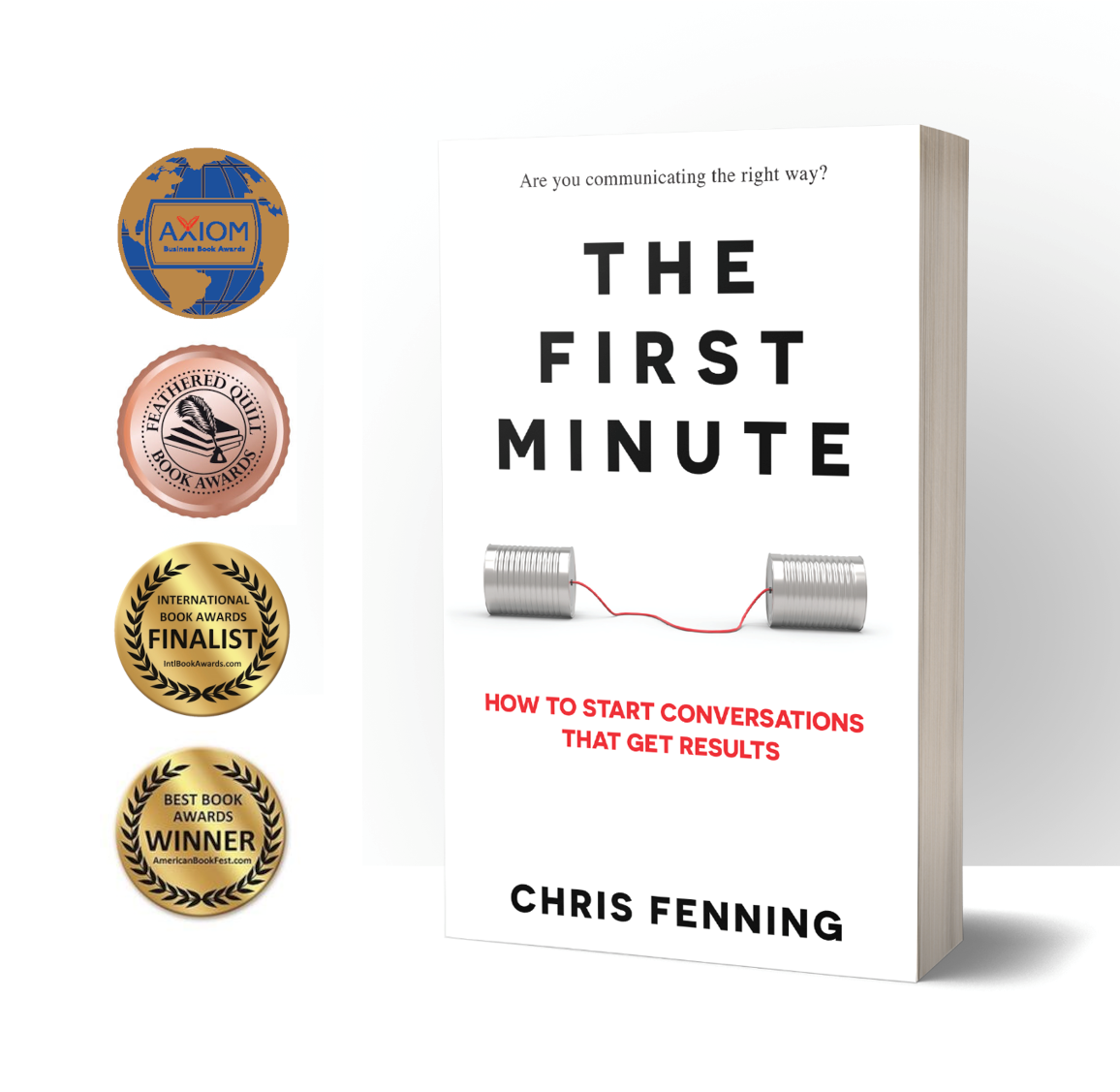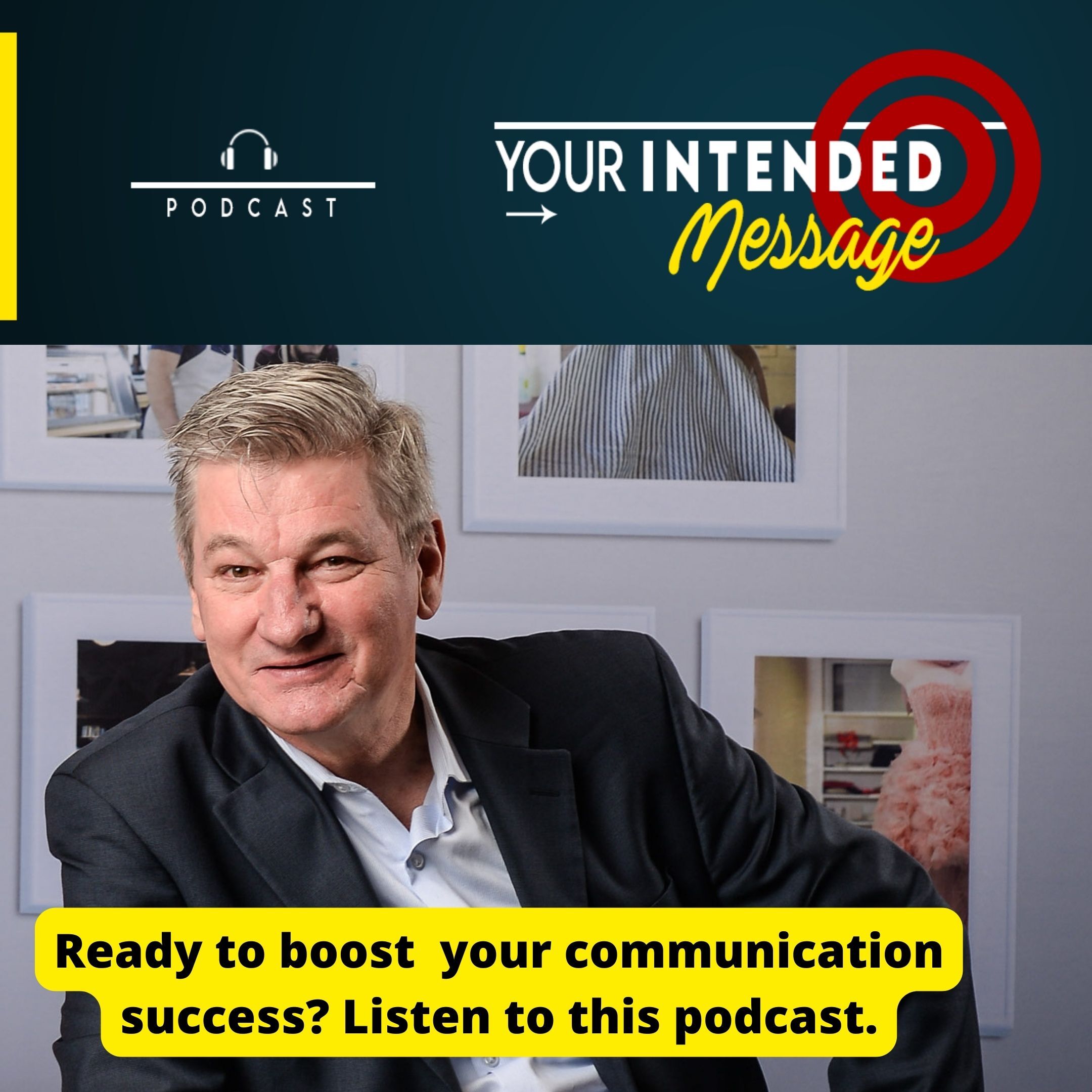
17.2K
Downloads
291
Episodes
The podcast about Effective Communication in Business
Better communication skills will advance your career and business. Are you ready to enhance your understanding and results from better communication? Listen and learn how to deliver Your Intended Message.
Are you willing to cross-examine communication from various perspectives? Would you like to deliver your intended message more effectively?
Listen to Your Intended Message to gain a powerful advantage in your ability to convey your message to your audience, team, clients or marketplace.
Learn from the mistakes and success of communication experts from around the world from different scenarios.
The better communicator has the competitive advantage.
Imagine what that means to you when you improve the success of your next conversation, presentation or message.
Your Host - George Torok
https://yourintendedmessage.com/
The podcast about Effective Communication in Business
Better communication skills will advance your career and business. Are you ready to enhance your understanding and results from better communication? Listen and learn how to deliver Your Intended Message.
Are you willing to cross-examine communication from various perspectives? Would you like to deliver your intended message more effectively?
Listen to Your Intended Message to gain a powerful advantage in your ability to convey your message to your audience, team, clients or marketplace.
Learn from the mistakes and success of communication experts from around the world from different scenarios.
The better communicator has the competitive advantage.
Imagine what that means to you when you improve the success of your next conversation, presentation or message.
Your Host - George Torok
Episodes
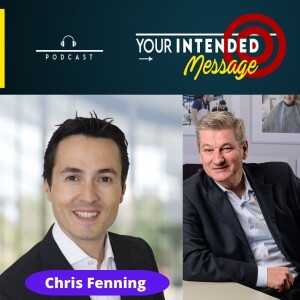
Thursday Apr 06, 2023
Initiate More Productive Conversations: Chris Fenning
Thursday Apr 06, 2023
Thursday Apr 06, 2023
How to participate in more productive conversation
What must you do in the first minute?
Episode 141 (Chris is based in The Netherlands)
In this conversation with Chris Fenning we explore:
- How to structure your conversation before you speak
- How to clarify the conversation in your head from the spoken one
- The three step GPS model to frame your conversation like a story
- Why you might need to zoom in and out when discussing details
- How to use the validation checkpoint to ensure interest and timing
- Recognize the danger of your assumptions
About Chris Fenning:
Chris has written several books on business communication, including his latest, The First Minute.
Organizations that he teaches at include Google, Pepsi and NATO.
Chris has a goal to give away one million communication skills books to students around the world to help them prepare for careers in business.
Learn more about Chris Fenning, his products and services at his website:
Check out his book, The First Minute
https://www.chrisfenning.com/books/
-----
Excerpts from this conversation with Chris Fenning
We start at the beginning in our heads. And then we start talking, we're already partway through the chain of though. So the conversation begins in the detail.
-----
01:58
The first minute is a practical how to guide for how to be clear and concise when you start communicating verbally or written.
It's about planning and delivering that first minute of a corridor conversation, rather than meeting of an email, or chat or a meeting that you've got with your boss.
So how to structure that message so that you get to the point, make your intentions clear, which ties in nicely with your intended message, because it's all about making sure your intended message comes across clearly and concisely. And really make sense to the person or people that you're talking to.
-----
30:20
There's a summary of some of what I've said. and it's, it's this, never assume your team knows what you're talking about.
All the things we've talked about today about assuming people understand the context of the topic, or I thought my intention was clear, I didn't maybe not exactly say it, but it was obvious what I meant.
All of those things. Never assume the team knows, always start from the beginning of the story. And do that zoom out.
So never assume that they know the context. Never assume they know the intent, make it clear why saying it.
Here's the topic we're going to going to talk about, here's why I'm talking to you about it. You need to take action, you need to listen to this information and work out if it impacts you.
Those sorts of things should be explicitly stated. And that by itself will remove a lot of frustration in teams, particularly the conversations that end up having Well you never You never asked me to do it. Yes, I did. I told you about this situation.
Well, you guessed but you've never told me that back and forth. Get really explicit. Never assume. Always. state very clearly.
-----
Read the rest of this entry »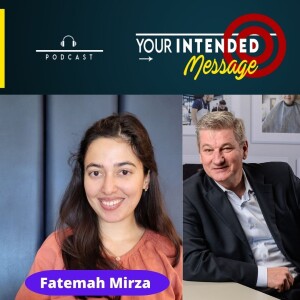
Thursday Mar 30, 2023
Ace that job interview: Fatemah Mirza
Thursday Mar 30, 2023
Thursday Mar 30, 2023
How to prepare for that critical job interview
Prepare for the standard and the unexpected questions
Episode 140 (Fatemah is based in Los Angeles, California)
In this conversation with Fatemah Mirza we explore:
- How to feel more comfortable with job interviews
- How to address those standard questions
- What "tell me about yourself" really means
- How to mitigate your red flags and time gaps
- How to tell enough without telling all
- Testing the fit between your personality and their culture
About Fatemah Mirza:
Fatemah started CareerTuners in 2010, through which she helps ambitious job seekers find, apply for and get higher-paying, more fulfilling jobs.
She helps job seekers take control of their job search. There are free resources about resume writing, Linkedin, salary negotiation and interviewing on the website.
https://careertuners.com/podcast/
-----
Excerpts from this conversation with Fatemah Mirza
The interview process itself is a key part of that. And that's something that a lot of people approach with, with trepidation. They're quite nervous, and they don't necessarily perform well. Why do you think they suffer so so greatly in an interview situation?
I think it's because you're putting yourself worth on the line. And that's really difficult for a lot of people, you're asking to be judged. And that's not fun. But if that's something you're struggling with, I recommend going out there and interviewing with companies that you just don't even want to work with. This will give you practice, you can even practice negotiating with them.
-----
I always wondered about the question. "Tell me about yourself". And I used to think that that was a lazy question. But then later I realized it's actually a brilliant question because people tend to answer it poorly. What did they do wrong? What should they do instead?
I think people tend to focus too much on themselves and their history as opposed to contextualize in what they've done to whatever the job is hiring for.
Transitions are so common now like transitioning from one field to another. So focusing too much on the field that you're trying to leave is not a good idea.
Even in that question. Tell me about yourself. You have to talk about, basically give the interviewer this message that I am the exact right fit for this position. I've been working towards this position my entire career history.
I have the adequate training for this position and I know the hard work that it's going to take for me to succeed in that position.
-----
You should ideally try to keep your answers to one to two minutes, you want to give the interviewer a chance to kind of mentally reset, because if you keep talking for too long, they might get disengaged, they only have a very limited attention span.
One to two minutes is about five to 10 sentences. And if you're like man, I'm really like short selling myself. I should be talking more about this once in a while. It's okay for one of your answers to be a little bit longer.
I could talk more about this if you like
-----
Read the rest of this entry »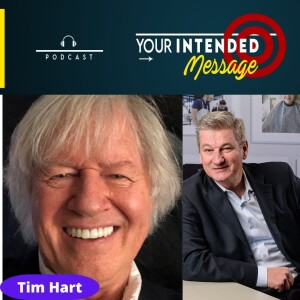
Thursday Mar 23, 2023
More Confidence for the CEO to Speak: Tim Hart
Thursday Mar 23, 2023
Thursday Mar 23, 2023
Pubic Speaking is a Skill that can be Learned even for the CEO
How to feel more confident and sound more natural
Episode 139 (Tim is based in Beverly Hills. CA)
In this conversation with Tim Hart we explore:
- The challenge of negative self talk
- How to make that connection with your audience
- The importance of addressing your leadership communications skills
- The power of stories and especially secret stories
About Tim Hart:
As founder and President of Leading CEO, the the past 20 years, Tim has trained thousands of executives in presentation skills.
Previously, he was CEO of two major US advertising agencies. He produced advertising for seven automobile brands comprised of American, Japanese, German and Korean car companies.
He is co-author of "Out Loud - How Public Speaking can Change Your Life and the World".
Learn more about Tim Hart and his programs at
https://www.leadingceo.com/
-----
Excerpts from this conversation with Tim Hart
I have a client who is CEO of one of the biggest companies in the world. And the thing with what happened with that, and the story about that is this, he wanted no one to know that he's working with me.
So this became this top secret thing. And they kind of snuck me into the building. And yet with him, I probably had the best time because we opened up in the very beginning to talk about stories.
I told him a story that I've never told anyone. And he told me the same thing story that he had never told anyone from that point on, we were bonded.
-----
06:56
And I suppose it's helpful to examine oneself, with some self thought, but it's destructive to be constantly flogging oneself. I'm bad, I'm bad.
07:10
Absolutely, I'll tell you one of the key things that I do. And this is kind of if there's a secret sauce in terms of what I do. Anytime I do any training, I ask everybody to give the person who's speaking feedback.
But ask them to tell them what they liked about it. I never asked them to criticize anybody. And so you're getting positive feedback from everybody in the room, which is great.
If I see something that I want to change, I'll just go in and change it. And it's very different. So they get the positive feedback. And then the way I handle it is, can we first thing I say to all kind of work with you on this, I have to get their permission.
And then they say yes, no one's ever said no to me, by the way. And so they say yes. And then I'll go in there and work with them on specific things that I think they need to learn and change.
And they do. It's fast how people change when you have that kind of one on one exchange. So no change right in front of everybody.
-----
Tell me a story and I will connect with you. That's how it works.
And that's why I encourage people here and I'll give everybody that's watching this an assignment I do with all my clients. Sit down and write out plenty stories of your own
We've all got 20, at least. Write down 20 meaningful stories and go through them and make sure that you understand each one of them. And then after you've done that, throw it away.
And they're all in your head. And what happens is that when you're giving a presentation, you can grab one of those stories and tell it if it's if it's relevant to what you're talking about.
Because the the thing about stories is they should be relevant to your conversation.
-----
Read the rest of this entry »
Thursday Mar 16, 2023
The Dirty Dozen Words & Phrases that Sabotage your Message: George Torok
Thursday Mar 16, 2023
Thursday Mar 16, 2023
If you knew the words that sabotage your message, would you stop using them?
Learn what words to avoid and how to clean up your messages.
Episode 138
In this episode George Torok offers his insights about:
- Why you need to select your words thoughtfully
- What common phrases could you stop using to be better understood
- What are the perceptions that people might form based on your word choice
- Why it's important that the words you use are your choice, no excuses
- What are these 12 dirty phrases to stop using
George Torok is a specialist in communication skills. He coaches executives to deliver their message more successfully. That might be in conversation or presentation.
Learn more about his programs and the results of his clients at
https://www.speechcoachforexecutives.com/
-----
Excerpts from this episode:
Let's review the dirty dozen words and phrases that sabotage your message. Take these words and phrases out of your messages, and you're more likely to be effective and successful when you speak. What are these Dirty Dozen?
The first category is the category of vague words, vagueness. And it's hard to come up with a vague word. If I tell you to come up with a vague word you probably it's difficult to come up with one because the concept itself vagueness does not help us think it does not help us see, what are the two biggest common mistakes of vagueness that people use.
They talk about stuff, get your stuff together, get your stuff, pick up your stuff. Well, what is stuff? What does stuff look like? What does stuff feel like? What does it smell like? When they say stuff? Do they mean your gear? Do they mean your books? Do they mean your materials? Do they mean the groceries?
What is the stuff? The only time that stuff is a good phrase is when you're talking about what you put in the turkey? Don't be a turkey stopped using stuff.
And the other one is things. And yes, there was a song from the sound of music. These are a few of my favourite things. And that case, it's okay. But other than that, stop using the word things. Why? Because again, what do you see?
What do you feel when you hear that word things? Oh, yeah, I really get it now. Now I understand. You're talking about things. It's vague. It doesn't tell us what you're talking about.
When you say things? What is it? You mean? Are you talking about benefits? Are you talking about products? Are you talking about problems? Are you talking about steps in a process? Are you talking about trucks? Are you talking about machinery? Are you talking about ideas?
Those are specific, and help people see and understand what you're talking about stuff and things are not clear. Get rid of them?
-----
If you're looking for more ideas on presentation skills, and you haven't yet, be sure to sign up for the weekly tips on present superior presentations.
And you can do that at www.TorokTips.com
Remember to come back every week because most of the time we interview guest experts on communication from around the world. So far, we've had guests from 13 countries, which gives us a terrific perspective.
And every once in a while, you can tune into one of these solo shows where I will offer you some of my insights.
Remember, if you want to get your message across, get rid of the dirty dozen words and phrases that sabotage your message so that you can deliver your intended message.
If you liked what you heard, tell your friends and post your five star review on Apple podcasts because that helps more listeners find us come back every week for more practical insights to help you deliver your intended message.
I'm your host, George Torok
If you found this helpful and entertaining, be sure to listen to the upcoming Weed Word Alerts. They are short rants about silly words that people say.
-----
Your host is George Torok
George is a specialist in executive communication skills. That includes conversation and presentation. He’s fascinated by way we communicate and influence behaviors. He delivers training and coaching programs to help leaders and promising professionals deliver the intended message for greater success.
Connect with George
www.SpeechCoachforExecutives.com
https://www.linkedin.com/in/georgetorokpresentations/
https://www.youtube.com/user/presentationskills
https://www.instagram.com/georgetorok/
For weekly tips to improve your presentations visit
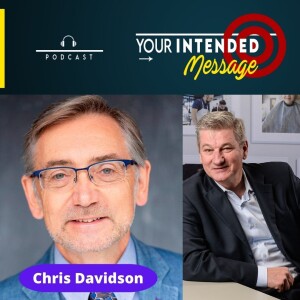
Tuesday Mar 07, 2023
Why is Your Website Not Working: Chris Davidson
Tuesday Mar 07, 2023
Tuesday Mar 07, 2023
Where do you start when fixing your website?
What is the purpose of your website and how can you make it work for you?
Episode 137 (Chris is based in the UK)
In this conversation with Chris Davidson we explore:
- Why your website might not be working
- How to test the results of your website
- How to sharpen your target focus
- How to leverage content on your website
- Guidelines to boost the power of your site blog
- Advertising or SEO which to follow and why
About Chris Davidson:
Chris is a highly experienced engineer and consultant, who started working in the IT sector more than 40 years ago. He specializes in website tools and services for SME service-oriented companies, and is the author of 'Why Your Website Doesn't Work'.
Learn more about Chris Davidson and his services at
https://www.activepresence.com/
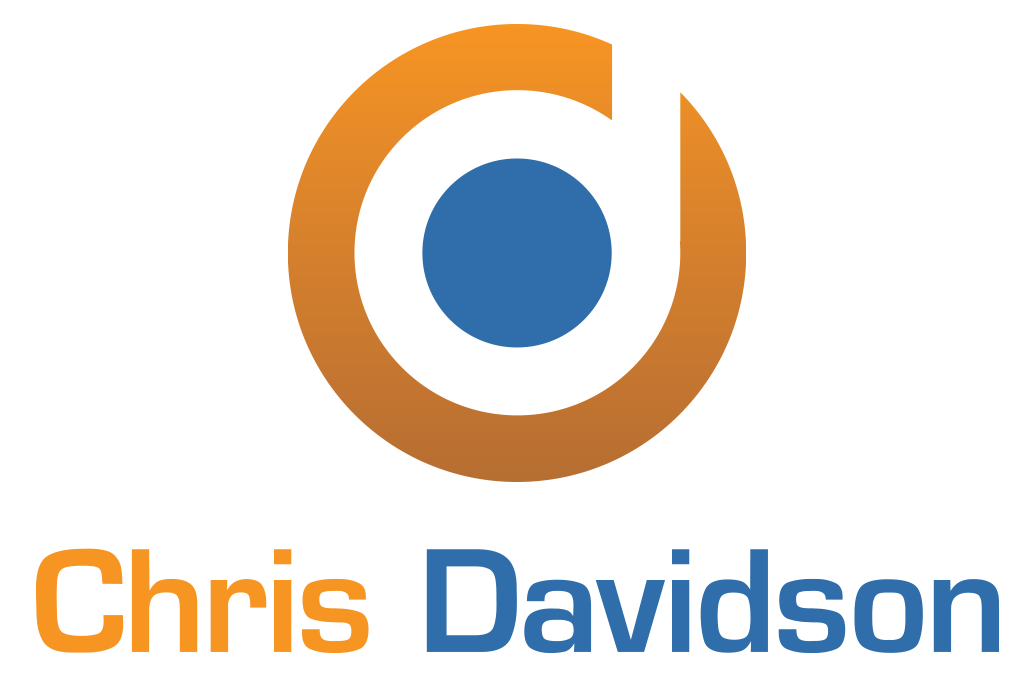
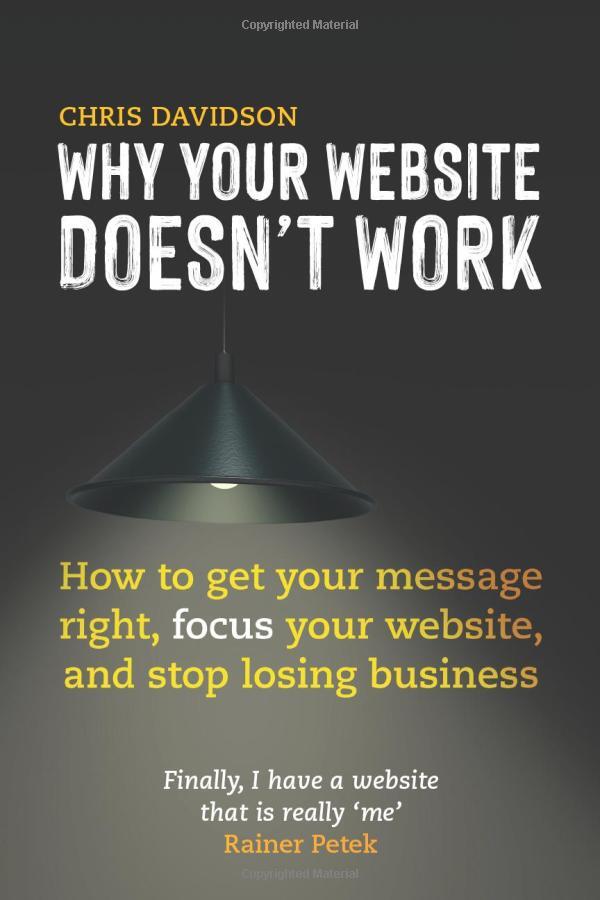
-----
Excerpts from this conversation with Chris Davidson
02:24
The biggest reason is weak target focus. That's the biggest reason there isn't a strong focus on exactly what their intended, perfect customer or client is.
And that means that there then isn't enough information about any product or service they're selling. There can't be because they haven't got in mind a clear idea of who their their perfect client is.
Now, this is making an assumption, of course, that all the other underlying foundations are in good shape. They may be they might not be you know that you can't tell from looking at a house, whether the foundations are in good shape.
That's why you have it surveyed before you buy it. So there is a number of steps that one could go through a number of tears, five, in fact, but the biggest issue, the biggest issue is this weak target focus, weak target focus, and let's come back to those tears in a moment.
But first, let's have a clear understanding of what you mean by weak target focus people.
So people come to my website, and I'm offering coaching for executive presentations. What's wrong with that?
Yeah, so there's nothing wrong with that, George, that is, that is okay. You know, that is your intended message, no pun intended. That is your intended message, isn't it? That you offer presentation training for executive? Okay, that's clear. That's clear.
But I might say, Well, what sort of markets, George do your, most of your clients from? And you might respond by saying, Oh, they're spread across all these sectors?
Or you might say, well, actually, Chris, you know, 80% of my business comes from the finance sector for just for the sake of example, right? And then I might say,
Well, if that's the case, George, why don't you just go all out and say, I do executive presentation coaching for finance executives, because if you then focus all of your marketing efforts on that particular that niche, you're going to get the other 20% Anyway, they're gonna get caught up in the wake of the passing ship and dragged along and you can decide whether you Want to service them how you want to service them as and when they arrive. But the sharper you make the point, the deeper it's going to dig in.
So I think that would be the point I would make to anybody out there, I would just come back to them and say, look, what is your intended message? And who is it really for? Is it really cross sector?
Or, actually is 80% of your business coming from SME sized businesses? Okay, in what sector? Well, most of its in most of it actually thinking about his professional services?
Okay, well, then let's just do that. It's very rare that you're gonna come across somebody who is genuinely so spread out that they're picking up business equally from all sectors, you know, it doesn't happen that way. Because, you know, people get referred to one another.
And what have you is that always there's a, there's always, if you dig into the numbers, there's always a sector in the lead somewhere. And why not just focus on that.
-----
Read the rest of this entry »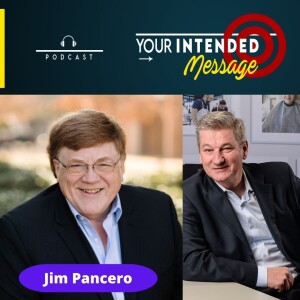
Thursday Mar 02, 2023
How to be more persuasive: Jim Pancero
Thursday Mar 02, 2023
Thursday Mar 02, 2023
If you work with people you need to persuade
What can you learn from effective selling techniques?
Episode 136 (Jim is based in Dallas, Texas)
In this conversation with Jim Pancero we explore:
- The best way to be more persuasive
- How to sell your ideas and yourself without feeling salesy
- Why the first step is to lower resistance and how to do that
- The power of asking questions and listening
- Why you can't simply throw the weight of your authority around
- How to accept unwelcomed suggestions with grace
About Jim Pancero:
Jim has worked as a sales and sales leadership speaker, trainer and consultant for over 40 years.
He has been recognized with many awards including being inducted into the National Speakers Association Hall of Fame.
He has volunteered as a photographer for Dallas area Special Olympics and a musical non-profit organization.
Connect with Jim on Linkedin where he publishes three brief sales videos every week.
https://www.linkedin.com/in/jimpancero/
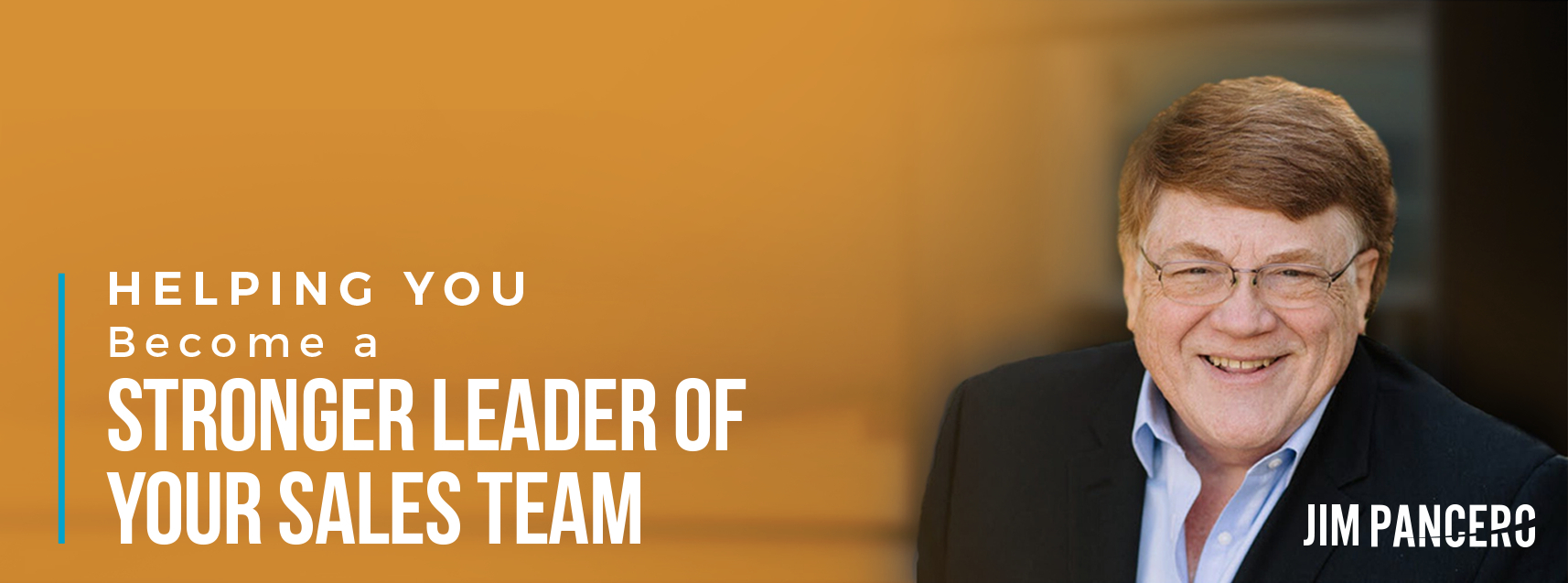
Watch the sales training videos at
-----
Excerpts from this conversation with Jim Pancero:
02:32
And certainly sales is important for any business. And but I want to take a look at the people who are not in sales, or at least think they're not in sales, but they really are. And maybe there's something they could learn from sales, if they can only get over the aversion to being called a salesperson, Jim, how can we help those people?
-----
So over half the people I've trained did not choose sales as a profession, but wound up having to be persuasive and sales in their job. The second part of it is if we look at in remove the word selling and sales, and just say what's happening here, we're trying to be persuasive.
I don't know of any job that does not require you to be persuasive, at least to somebody, whether it's to your customers, if you're in retail, whether it's to your boss, if you're in an administrative position of doing something, whether it's to your co workers to get them to help you with the project, or just how you get along with your family parenting is the toughest persuasive position there is because you're trying to persuade a five year old not to do something that they think is completely reasonable, like throwing ketchup on the wall. or something?
So it's how do we persuade? How do we convince because you can't just order anybody. Because even if you can get away with it, because you're their boss, or you're their parent, they resent you for it starts to cause a distance and you become less effective.
If we really look, if we want to be effective in life, our job is we have to motivate others. The challenge though, of doing that, is there some real specific rules of motivation?
The first rule of motivation is you can't motivate anybody to do anything. It's just it's a fact. So how do we become persuasive in that environment?
Well, it's the second rule, everybody's already highly motivated Zig Ziglar, the motivational speaker used to say, I can show you a bunch of unmotivated people it's called a cemetery.
And if we looked at everybody's already highly motivated, the problem is rule number three, and that is people are motivated for their reasons, their bias, their background, their culture, their beliefs, everything about them biases, how they view what motivates what they want to be motivated about.
So if we look at as a leader, as a manager, even as a co worker, all we can do is build an environment so that people want to motivate themselves. And if we look at how do we do that?
How do we create an environment, whether it's with a peer, a boss, an employee, or with a customer, or a neighbor, any of these things, if we look at it, what it comes down to is, if we're more persuasive, and we're more effective, and how we communicate,
-----
Read the rest of this entry »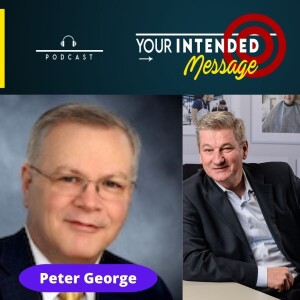
Thursday Feb 23, 2023
Flip the Fear of Public Speaking: Peter George
Thursday Feb 23, 2023
Thursday Feb 23, 2023
Channel the fear of public speaking into positive energy
Competence breeds confidence
Episode 135 (Peter is based in Rhode Island)
In this conversation with Peter George we explore:
- How to channel the fear of public speaking as positive energy
- What's the real fears that create anxiety
- How to control the energy to boost your performance
- Why it's critical to realize that perfection is not the goal
- How changing your focus to the audience makes it easier for you
- Harness the power of visualizing your positive outcome
About Peter George:
Throughout his childhood, Peter dealt with a lisp and a stutter. Consequently, he grew up shy and introverted, avoiding communication with others.
For the past 17 years, he has been coaching professionals to be calm, confident and credible when they speak.
He is the host of the Public Speaking with Peter George podcast.
He is the author of The Captivating Public Speaker, Engage, Impact and Inspire Your Audience Every Time.
Learn more about Peter George and find free resources at...
https://petergeorgepublicspeaking.com/

-----
Excerpts from this conversation with Peter George:
03:55
I imagine not everyone needs to go through the therapy with Cruella and tears every every Tuesday morning. When you work with people, and you help them address the fear of public speaking, where do you start?
04:17
First of all, I don't believe there is such a thing. And I say that sort of tongue in cheek, but if we look at why we get nervous about speaking, it's adrenaline.
Our adrenaline's flowing. So George, let's say you and I are going to an amusement park and you love roller coasters. And this amusement park has a brand new roller coaster. It does all these flips and you're hanging from the top and everything else.
And I'm looking at the line and looking at the roller coaster go on. I don't think so. You and I are probably feeling the same thing. You're getting an adrenaline rush and that's what you consider it this is going to be great
Oh, my heart's beating, My blood pressure's up, I'm getting sweaty, I'm so excited to get on this roller coaster, I'm going to be standing there going, this is the last thing in the world, I want to do my heart's racing,
My blood pressure's going up and getting all sweaty. It's adrenaline. Now how we label it might be different. And that's just one aspect of it. But a lot of us are afraid of public speaking, if you will. Because we don't want to make fools out ourselves.
We don't want to be embarrassed. And I certainly get that. Or we, we know that we're not sufficiently prepared, or we don't know how to prepare.
So all these things make us nervous as they should, if you don't know how to do something, and then you have to go do it in front of other people.
It would be me going to Yankee Stadium, having never faced a 90 mile an hour fastball before 50,000 people in the stands, and I'm at home plate. What are the odds, I'm going to hit this ball, slim to none. And I know that.
So I would be nervous up there that I'm going to make a fool out of myself. This might be making it very light. But that's really what it comes down to.
And the idea that public speaking is the greatest fear known to humanity. I don't agree with that either. If you look at studies, it's well behind spiders, snakes, even clowns. So I'm one who's petrified of clowns, by the way.
-----
16:37
Hmm, and maybe a good mantra to to keep in mind when when people are speaking to heck with them. You don't like it The heck with you.
And Peter, I'm also wondering, I noticed when you you started telling us those two stories about your family, but about first about your your dad to firefighter, and then your your great grandma.
Might that be a technique that a person can use when they're delivering a speech or a presentation by bringing in a personal or a family story?
Because they'll that will automatically make them feel good, because they're talking about something that they care about.
-----
Read the rest of this entry »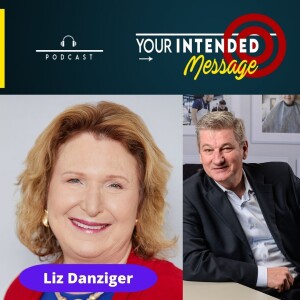
Thursday Feb 16, 2023
Write email that Grabs Attention and doesn’t Offend: Liz Danziger
Thursday Feb 16, 2023
Thursday Feb 16, 2023
Check your email with the "you idiot" test before you send
How to write emails that are more productive
Episode 134 (Liz is based in L.A.)
In this conversation with Liz Danziger we explore:
- How to write emails that work effectively
- What to check when you reread before sending
- The three P's to prepare your message
- The New York Times and court room guide for emails
- How to write and email that people read
- The right type of emotional language
About Liz Danziger:
Liz is the author of four books published by major publishers including business writing guide, Get to the Point! She is also a columnist on Inc.com
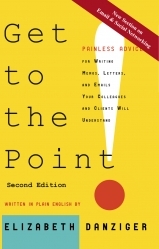
She has decades of experience in helping teams to write clearly and confidently.
Her goal is to empower people to wield the power of words to create success.
To receive her monthly writing tips called Writamins visit www,WorkTalk.com
At the same site you can get your copy of Ten Tips for Communicating Effectively in a Fast-Paced World.
You can arrange a complimentary 30-minute call to explore communication issues in your organization. Select a time on her calendar
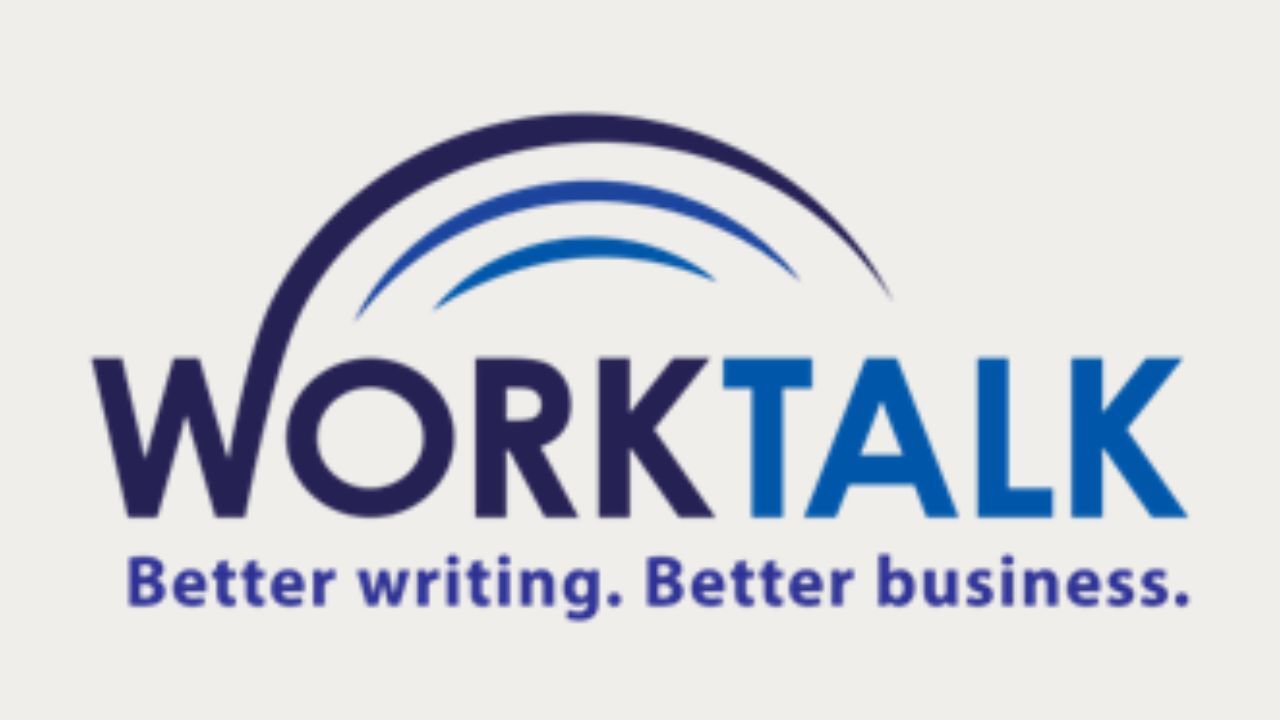
-----
Excerpts from this conversation with Liz Danziger:
02:53
Yes, one thing is that they could know their purpose before they start and know their point before they start. My view is that most writing problems happen before a person starts to write. They happen in the thinking phase when people don't think about their purpose.
And that's why I'm so pleased to be on this podcast, your intended message, because that's exactly what the worktop trainings are about is having people be clear on their intentions, and then target their readers.
And so the first thing is to know your purpose and your point. The second thing would be to think about your reader it astonishes me sometimes, how people will just sit down and they're just tap it, tap it tap, but they're writing away.
And then if I stopped them in coaching or in training, and I asked them, so what do you think your readers interested in? And they're like, oh, that's an interesting question. So they need to think about the reader and they need to use clear language.
And the last thing I will say is, people have to reread before they send. It's a common common error that people just tap it tap and send without proofreading. And they live to bear the consequences.
-----
And the way to use email, when you have an emotional message to send is to send the person an email saying, There's something I need to discuss with you, are you available next Tuesday at 1015.
That's how you use email when you have emotions. Because the emotional email will come back to bite you.
-----
And sometimes you can do some short, persuasive emails. I just want to backtrack a little bit and talk about when your topic, your theme, which is your intended message, which I just love.
And there are basically three main purposes that business documents have. And those are to inform, to request and to persuade.
If you look at every email you ever wrote, you will see that in all likelihood, it falls into one of those categories you're telling, you're asking or you're selling. And we need to know which of those we're doing in order to effectively convey our message.
-----
Read the rest of this entry »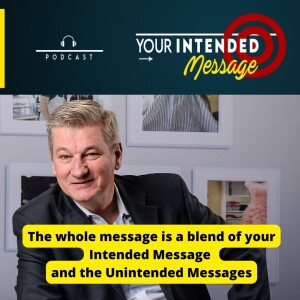
Thursday Feb 09, 2023
The Whole Message = Your Intended Message + The Unintended Message
Thursday Feb 09, 2023
Thursday Feb 09, 2023
Are you clear on the difference and interference between your intended and unintended messages?
Episode 133
In this episode, George Torok offers his insights about:
- What are the two blended components of the whole message?
- What are the filters that might distort your intended message?
- What is that static that can sabotage your intended message?
- What are the elements that generate the unintended messages?
George Torok is a specialist in communication skills. He coaches executives to deliver their message more successfully. That might be in conversation or presentation.
Learn more about his programs and the results of his clients at
https://www.speechcoachforexecutives.com/
-----
Excerpts from this episode:
Today, let's look at the title of this podcast, your intended message. That is part of the message that you send. When you send a message.
Did you know that there are two distinct parts not so distinct, mixed together within your message, your whole message is actually a blend of your intended message and the unintended messages. Let's look at the challenges of both. And once you are aware of these challenges, you can deal with them more effectively, and communicate more successfully. Start let's start with the intended message.
The intended message, of course, is the message that you want to send you hope to send and you believe you sent. However, it's not necessarily the message that was received and understood. And you can probably guess why is that the case? Well, here's four possible reasons why your message might not get through the intended message might not get through one.
Perhaps you failed to clarify your message before sending. And this is a common mistake when it's more common when speaking than writing, we can do it in writing. The good news about is when you write a message, you have time to review and edit before you send. And if it's a particularly thorny message, you might be wise enough to write it, review it, put it aside for a day and come back to it the next day where you can review it and edit and maybe not send it at all.
However, when you're speaking, the danger is you don't have the opportunity to edit unless you have prepared and rehearsed this message that you are delivering, which I suggest you do whenever you can.
So perhaps the first reason why your intended message doesn't get across is maybe you simply failed to clarify your message before sending clarify your message before you start speaking. And that might mean pausing and thinking before you speak.
-----
To you, it's a mess. To me, it makes sense. And your head. What's going on your head makes sense to you, because you've had all your life to get used to the mess in your head.
And when you want to send a message, you need to take that message in your head, convert it into words, speak the words, they hear the words and convert it into the mess in their head, there's a couple of translations going on. Good opportunity for things to go wrong. And one of the areas of things might go wrong, is the filters that we use, to that we put your message through before we even consider it.
And the filters, we have filters, we filter your message because we are bombarded by messages every day. And we need to make quick decisions. And sometimes those filters work against you getting your intended message across.
What are some of those filters? Well, the first one is beliefs. What are the beliefs that they have? The beliefs they have about you, your company, your organisation, the group you hang around? When what beliefs the topic, your topic, you're talking about that you're telling them? What do they believe? How do they believe differently? And are you addressing those beliefs? Are you clarifying the message,
-----
Your host is George Torok
George is a specialist in executive communication skills. That includes conversation and presentation. He’s fascinated by way we communicate and influence behaviors. He delivers training and coaching programs to help leaders and promising professionals deliver the intended message for greater success.
Connect with George
www.SpeechCoachforExecutives.com
https://www.linkedin.com/in/georgetorokpresentations/
https://www.youtube.com/user/presentationskills
https://www.instagram.com/georgetorok/
For weekly tips to improve your presentations visit
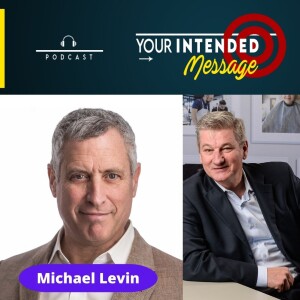
Friday Feb 03, 2023
Write Your Book: Michael Levin
Friday Feb 03, 2023
Friday Feb 03, 2023
You can publish your book with a ghost writer
How do you know if it's time to publish your book?
Episode 132 (Michael is based in New Jersey)
In this conversation with Michael Levin we explore:
- Recognizing if you are at the right point to publish your book
- Why a book is an interim report and not a final report
- Your message must be of value to your readers
- How your book can shift the narrative
- Why a thought leader must publish their book
- The 90-minute book plan
- The benefit of independent publishing
About Michael Levin:
Michael is a New York Times bestselling author and is the most prolific and experienced business ghostwriter in the US publishing industry.
He has written more than 20 legitimate national bestsellers and multiple number bestselling books for his clients.
To explore working with Michael to write your book, you can call him at
617-543-3747
Learn more at his website: https://www.michaellevinwrites.com/
-----
Excerpts from this conversation with Michael Levin:
Books are magic
-----
The first chapter is about the readers' problems
-----
03:02
Writing a book for yourself is one skill. But then the other skill is writing it as a ghostwriter. Putting someone else's ideas into words. What mental shift do you need to make when you go into ghostwriter mode?
03:22
Yeah, that's a great question. George, I met Amy Tan, I actually shot pool with Amy Tan, it's a long story. And she she wrote the kitchen, God's wife and the Joy Luck Club and a lot of other best selling really important books.
She says that whenever she was getting into a different character, she would look at her shoes. And just imagine she was physically in the shoes of the other character.
I don't really look at my shoes. But I do think a lot about what's this person's worldview? How do they grow up? What did they see that I haven't seen? How do they express themselves?
And I'll study the transcript of the call because that's going to give me clues as to their syntax, and how and then their word choice, their mode of expression. Do they like short sentences? Do they go on as I am now.
And you put that all together? And it's sort of a mimicry skill combined with the ability to write writing someone else's voice and put material together, you put that all together and and you can generally find your way into somebody's voice. I mean, I've been doing this long enough.
So I've been doing this for 30 years. So you know, this is what I do.
-----
Yeah, so I'm hearing there, that one possible sign or signal that you might be ready to write a book is when you're going through a major change in your own growth, own development?
09:34
Yeah, that's true. That one of the times to write a book is when you're about to make a great leap forward in your career and you want the world to understand who you are, as opposed to seeing the world seeing you as who you've been.
And then at the same time, there are other folks who are most of the most of the people I work with, as I said, they're already successful.
And they just simply they want more, you know, they want more clients. They want more assets under management. They, they want more fame, they want their brand to be out there in a bigger way.
They want it to be easier to acquire new clients, they don't want to have to, you know, get out there and speak or hustle or do all that they want the book to do the work for them. And that's what books do.
Books are magic. I always say that, when you do a book magic happens, you cannot predict from which direction the magical calm or what it will look like. But time after time after time, the results for the clients are indeed magical
-----
Read the rest of this entry »
